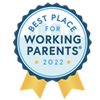Dyslexia Edition

Dyslexia. As confusing to read and spell for those who have it as it is to understand for those who do not. What has once been thought a negative learning condition is now being recognized, and even celebrated, as a perfectly normal neurological disability. Read that again. Dyslexia is a perfectly normal, not to mention common, neurological disability.
Dyslexia is a language-based disorder oriented in the brain that affects anywhere from 5-15% of our world’s population. Often recognized in grade school, dyslexia makes it more challenging for people to “read, write, spell, reason, concentrate, solve problems, and organize information” (American Academy of Pediatrics). As so much time in school is devoted to the very skills this disability affects, a person’s social and emotional status is largely affected as well.
Due to the prevalence of this disability and the need for “fixing” things in education, many turn to the internet to attempt preventing, diagnosing, and treating learning disabilities such as dyslexia. The internet never lies, right?
WRONG. The amount of unethical, ignorant, unexplored, and/or downright strange information on learning disabilities available on the internet is unfathomable. Remember, the internet is a public place. Anyone, regardless of knowledge on a topic, can post his or her “ideals” for preventing, discovering, and “fixing” just about anything. Searchers beware-you’re in for a scam.
When it comes to dyslexia, there is no “prevention” for the disability. Simply put, brains with dyslexia are just wired differently. Scientists and researchers alike have proven that reading, writing, and spelling take place prominently in the left side of the brain. People with dyslexia are “right brain dominant,” and therefore take longer and have to work harder at processing language. Being “right-brained” lends itself to developing extensive oral vocabularies and cultivating creativity and engineering skills, but it makes the unnatural process of reading and writing a nightmare.
In an attempt at understanding the disability, parents, spouses, friends, and family alike all ask themselves, “If we can’t prevent it, how do we “fix” it?” THIS… This is where the disability needs a sign posting, “PROCEED WITH CAUTION.”
First of all, there is no “fixing” dyslexia. Read that again. Dyslexia is not a sickness that can be cured or an impairment from which people “recover.” It is not something you can Google common symptoms of, self-diagnose, self-cure, and move on with your life. Fancy colored overlays, special glasses, expensive programs boasting “real results NOW!” and vision workouts are not going to help either. These gimmicks and misinformed websites are just that: capitalism at its finest, preying on those who just want to help or just want the ability to read!
Dyslexia is a life-long disability, but it does not have to be a lifelong struggle. Research-based, science-influenced, extensive, and systematic reading intervention is the best way to help a person with dyslexia cope and manage their disability. People with dyslexia need access to ongoing, tailored, multisensory, scaffolded, systematic, and intensive reading and writing instruction. The Reading Connection in Fort Worth is focused on providing said specialized instruction.
At The Reading Connection, a child is assessed on intake into the clinic. During their assessment, strengths and weaknesses are identified which are then used as building blocks in creating a comprehensive yet flexible learning plan. From here, specialists analyze data, formulate tailored lesson plans, and conduct one-on-one sessions that are specific to each individual learner. As no two learners are alike, no two brains with dyslexia are alike, either. The trained and knowledgeable specialists at reading connection are armed with research-proven instruction and ready to handle the challenges that accompany living with dyslexia.
For more information about The Reading Connection or to enroll, call The Reading Connection office at (817) 924-2000, email Cindy Wayland at cwayland@reading-connection.com, or visit www.reading-connection.com.


